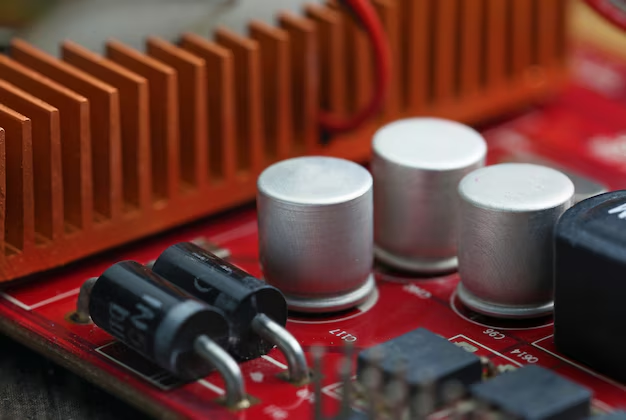Choosing the Right Generator Size to Power Your Refrigerator: A Comprehensive Guide
Imagine a stormy night where power outages are common. Suddenly, you hear the dreaded silence as the hum of your refrigerator ceases. At moments like these, having a generator can be a lifesaver. But this begs a crucial question: What size generator do you need to keep your refrigerator running smoothly? Let's delve into this topic to ensure you're prepared for any unexpected power cut.
Understanding Refrigerator Power Requirements
How Refrigerators Use Power
Refrigerators are a staple in modern households, keeping our food fresh and safe. They operate with a compressor that cycles on and off to maintain a set temperature. During these cycles, refrigerators draw varying amounts of power, primarily distinguished as starting (or surge) watts and running (or continuous) watts.
- Starting Watts: This is the extra power needed to start the compressor motor. It is typically higher than the running watts.
- Running Watts: This lower wattage keeps the refrigerator operating once the compressor is active.
To determine the right generator size, you must know the starting and running wattage of your specific refrigerator model. This information can usually be found on the refrigerator's nameplate or in its user manual.
Average Power Consumption
While exact numbers vary, most modern refrigerators require about 800 to 1,200 watts to start and 100 to 800 watts to continue running. Factors such as size, age, and model type can influence energy demands.
Sizing Your Generator: Calculating Your Needs
Step-by-Step Calculation
Here's a simple way to estimate the necessary generator size:
- Identify Appliance Specifications: Use the refrigerator's label or manual to find its starting and running watts.
- Consider Additional Loads: If you plan to power other devices, add their wattage requirements to your total.
- Select Generator Wattage: Choose a generator with a rated wattage above the total peak wattage of all connected devices.
For a single refrigerator, a generator rated at 2,000 watts is generally sufficient. This provides enough power for both starting and running the fridge, with a safety margin to accommodate power fluctuations.
Other Factors to Consider
Fuel Type
Generators can use propane, gasoline, diesel, or natural gas. Your choice can affect generator efficiency, cost, and environmental impact. Gasoline is often preferred for small, portable generators due to convenience, but consider your needs and local availability.
Portability vs. Permanence
Decide if you need a portable generator or a standby model. Portable generators are great for temporary power needs and easier to transport, while standby generators offer seamless integration and automatic startup during outages, ideal for long-term use.
Noise Levels
Consider a generator's decibel rating. Quieter models are available and can be crucial in residential areas where loud generators might disturb the peace.
Safety Features
Look for models with overload protection, low-oil shutdowns, and inverters, particularly if you're powering sensitive electronics. These help prevent damage and enhance safe operation.
Subtopics of Interest
Alternatives to Generators
If a generator seems like a costly investment, consider alternatives such as battery backup systems or solar-powered solutions. These may offer quieter, more environmentally friendly options but may not provide the same energy capacity as traditional generators.
Energy Efficiency Tips
To maximize efficiency, ensure your refrigerator is sealed properly to prevent cold air from escaping. During an outage, minimize the number of times you open the refrigerator door to conserve energy and maintain temperature.
Key Takeaways
Here’s a concise summary to guide your generator decision-making process:
- 🔌 Understand Your Power Needs: Know your refrigerator's starting and running watt requirements.
- 💪 Choose Sufficient Wattage: Opt for a generator with at least 2,000 watts to comfortably cover most refrigerators’ needs.
- 🥤 Keep It Fuel-Efficient: Consider fuel type for operational costs and refueling convenience.
- 🔊 Manage Noise Levels: Prioritize quieter models if generator noise is a concern.
- 🔒 Prioritize Safety: Evaluate safety features to protect both your appliances and the generator itself.
- 🌍 Explore Alternatives: For eco-friendly options, look at solar-powered or battery backup solutions.
Practical Tips for Generator Use
- Regular Maintenance: Keep your generator in top shape with regular checks and servicing.
- Proper Storage: Store fuel safely and in compliance with manufacturer guidelines.
- Test Periodically: Run your generator periodically to ensure it remains functional for emergencies.
Choosing the right generator size is about balancing your immediate appliance needs with future power plans. As you evaluate your requirements, consider how often you face power outages and any potential future expansions. This ensures you invest in a generator that best aligns with your household's unique needs. Empower yourself with this knowledge to keep the lights—and refrigeration—on even when the grid fails.

